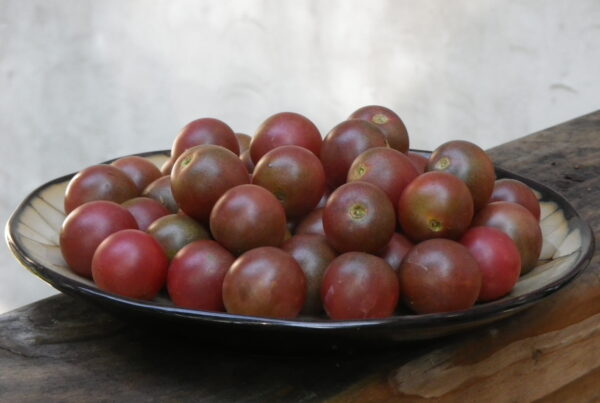By Mark Schonbeck
USDA Launches 2022 Census of Agriculture
The USDA’s National Agricultural Statistics Service (NASS) will be sending out its survey this month to all US farmers for its 2022 Census of Agriculture. By responding to this survey, you help ensure that USDA knows how many small to midscale, organic, and conservation minded farmers are out here trying to make a living. The Ag Census (which occurs every five years) is a vital part of making your voice heard and advocating for a truly equitable and regenerative food and agricultural system. So, stand up to be counted – send in your completed survey.
Read the NSAC blog about the 2022 Ag Census to learn more.
NSAC Releases its Platform for the 2023 Farm Bill
Congressional Agriculture Committees are starting their work on the Bill
On November 17, the National Sustainable Agriculture Coalition (NSAC) announced the public release of its 2023 Farm Bill Platform, a vision for a transformative bill that will truly help farmers address multiple challenges related to the climate crisis, soil and other resources, economic viability, and building racial equity and justice throughout the US agriculture and food system. This document represents a months-long collective endeavor of NSAC staff and its 130+ member organizations, of which VABF is one.
The 2023 Farm Bill Platform provides a roadmap for our advocacy with House and Senate Agriculture Committees and other key Members of Congress as this year’s farm bill process moves forward toward completion by September 30 when the current Farm Bill expires.
Watch for 2023 Farm Bill updates and action alerts in coming monthly e-newsletters.
Rally for Resilience in Washington, DC
March 6 – 8, 2023 – mark your calendars!
As noted in the September e-newsletter, NSAC and several member groups are planning a farmers’ rally in Washington DC to urge and support Congress to write a Farm Bill that addresses the climate crisis in agriculture through:
- Farmer-led climate solutions
- Promoting racial justice throughout the Farm Bill
- Climate and agricultural solutions that serve communities, not corporations.
With our comparative proximity to Washington, DC, this will give VABF farmer members and other stakeholders a golden opportunity to bring our message and concerns to our Members of Congress and to join in a mass demonstration of our common desire to heal the land, stabilize the climate, and build an equitable food system through a better Farm Bill for 2023.
Watch for more announcements and event details in coming e-newsletters.
USDA Invests in Small Meat Processing Businesses
On November 2, the USDA announced funding for 21 new projects, in an initial round of the Meat and Poultry Processing Expansion Program (MPPEP), which aims to increase options for small to midsize livestock producers, promote competition in the livestock sector, and lower costs for American families. For more on this and other related initiatives, see the NSAC blog on meat processing.
Legislative Initiatives to Enhance Small-Midscale Livestock Farm Viability
Retail meat prices have soared much faster than the general inflation rate (which has been bad enough!) yet livestock producers see little or no increase in farmgate revenues. What is going on here, and what can be done about it? Continued consolidation and vertical integration in the meat industry have allowed agribusiness to jack up consumer prices without having to pass any of the additional proceeds along to farmers.
Several pieces of Congressional legislation seek to address various aspects of this crisis, helping small and midscale livestock producers and meat processors stay in business and improve their bottom lines through regulatory reform as well as direct assistance. These include the Small Family Farmers and Ranchers Relief Act, the Strengthening Local Processing Act, meat-related provisions of the Agriculture Resilience Act, and several other bills. For more information see the NSAC blog post on Livestock and Poultry Reform and Resilience legislation.
Funding for Farmers of Color and Military Veteran Farmers
2501 Program, FFAR funding for Tuskegee University, and IRA Debt Relief
The Outreach and Assistance for Socially Disadvantaged and Veteran Farmers and Ranchers Program, more commonly known as the “2501 Program,” announced its awards for the 2022 funding cycle. Awardees include PASA Sustainable Agriculture, Center for Rural Affairs, Practical Farmers of Iowa, Ohio Ecological Food and Farming Association, and World Farmers, who will use their awards to provide minority and veteran farmers with technical assistance in marketing, business management, production, and accessing other USDA programs. For more on these endeavors, see the NSAC blog post on 2501.
The Foundation for Food and Agriculture Research (FFAR) and the Clif Bar Foundation have each provided $1 million in funding to Tuskegee University for organic agriculture research and outreach. Plant and soil science professor Dr. Kokoasse Kpomblekou, and colleagues will use the funds to conduct cutting-edge research in organic agriculture for the southeastern US and to help more Black farmers and aspiring farmers build successful organic farming enterprises. See the FFAR press release for more information on this endeavor.
As mentioned in the October e-newsletter, the USDA is now implementing Section 22006 of the Inflation Reduction Act (IRA), which provides $3.1 billion in funding for debt relief. This program will allow many thousands of financially distressed farmers to stay on the land and stay in business. For more information, see the NSAC blog post and the Farmers’ Legal Action Group publication Farmers’ Guide to the IRA.
The USDA is offering $350 million in funding for projects designed to improve access to land, capital, and markets for historically underserved producers, and another $200 million for training the next generation of agricultural scientists and professionals in minority-serving institutions. Click here for more information on these programs.
Transition to Organic Partnership Program
$100 million in funding for NGOs to Train New Organic Farmers
On October 24, the United States Department of Agriculture (USDA) announced cooperative agreements in six regions across the country for the Transition to Organic Partnership Program (TOPP). Part of the newly created Organic Transition Initiative, TOPP will provide $100 million over the next five years to support nonprofit organizations in providing paid mentoring services through which experienced organic farmers help newly transitioning farmers get off to a successful start. Participant organizations include Carolina Farm Stewardship Association, Georgia Organics, Florida Organic Growers, Northeast Organic Farmers Association, and many others. See NSAC blog on TOPP for more.
If you would like to serve as a mentor for new and transitioning organic farmers, or would like help in your transition process, click here for more information.






